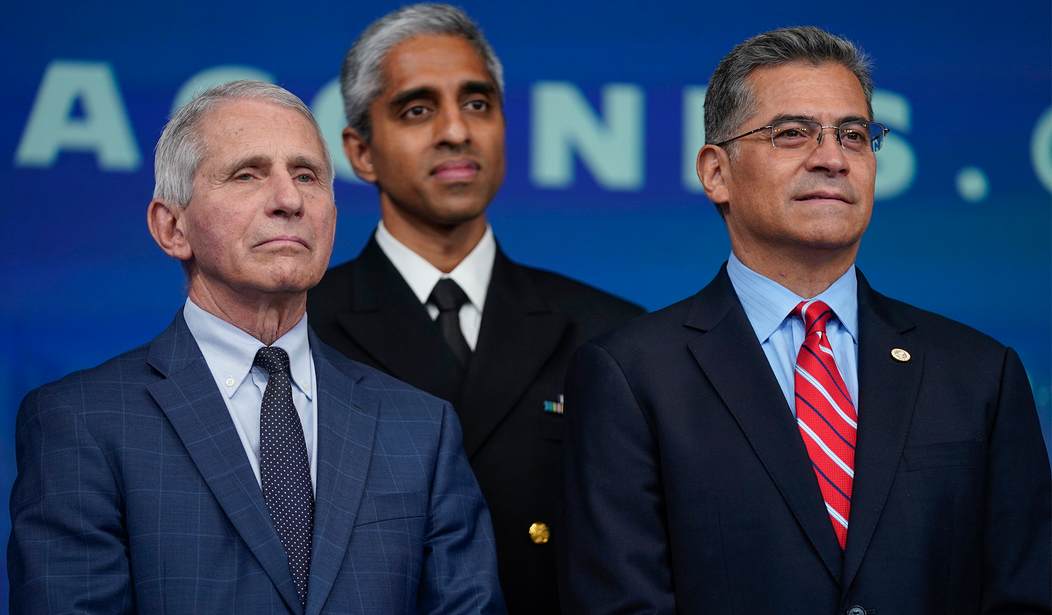There is one and only one justification for government lockdowns during a pandemic: they save lives.
For decades public health authorities rejected that assertion, weighing the costs and benefits as best they could predict, and concluding that locking down society is a bad move.
Lockdowns are fundamentally different from quarantines, which in some cases can be justified. If you can limit the spread of a contagious pathogen by restricting the movement of a small group of people for a limited period it might be a good idea to do so.
Lockdowns, though, don’t impose restrictions on people who are sick, but on everybody as much as possible. The presumption is that everybody is a potential viral vector (true) and keeping people isolated will shut down viral transmission.
The reason why it was conventional wisdom that lockdowns were a bad idea is that it is impossible to do this at scale, and the costs of trying are enormous. It turns out that human societies depend on human interactions, and even the lockdowns imposed in the US required people to move around and interact at times. Unless you live in the woods you will likely be infected with a virulent respiratory virus. As happened here and everywhere else in the world.
In 2020 the arrogant tyrants in our public health infrastructure decided to toss away decades of research and planning and try the lockdowns, probably inspired by China. Authoritarians love China, and some still defend its approach to fighting the virus. As China’s economy collapses in front of our eyes, many of our elites still drool over the power Xi has and want it for themselves.
Still, the failure of lockdowns to shut down viral transmission has not been a barrier to defending them. The “if it saves one life” argument is trotted out, as well as the occasional “what’s the big deal?”
As for the first argument, despite the incuriosity of our government officials who notably did no randomized controlled trials on the effectiveness of any of their interventions to fight the virus, data is still leaking out. On the lockdowns the data is clear: the public health authorities were right before COVID–lockdowns don’t work.
The paper exploits staggered implementation fo the policy to measure the effect of shelter-in-place orders. Here's a link to this very interesting peer-reviewed paper in Health Economics by @agrawal_virat, Neeraj Sood, @CM_Whaley, and Jonathan Cantor.https://t.co/IwGF4kSZBx
2/2— Jay Bhattacharya (@DrJBhattacharya) September 14, 2023
This paper Dr Bhattacharya points to simply looks at the impact of lockdowns on excess mortality–you know, the lives we were trying to save–and shows that the lockdowns did nothing to save lives. This should surprise nobody if they had even the most passing interest in public health literature before COVID and even the most mediocre understanding of economic theory.
The logic behind the shelter-in-place orders was driven by an intellectual flaw common enough, and endemic to all experts: looking at problems through the lens of a single variable and ignoring the interactions and feedback loops within a system. With lockdowns the logic is simple: prevent interactions among people and the viral spread will stop. Q.E.D. End of the pandemic.
The real world is much more complicated. People need to eat, for instance. Some stores must remain open. People have health care needs other than COVID emergency care. The variables are not countable. Hence the original goal–stopping viral spread–was never achievable, but huge costs were incurred trying to achieve it.
Among those costs are chronic health conditions that have and will continue to cost lives. In the years since COVID hit excess mortality from conditions OTHER THAN Covid have skyrocketed. The one place where this has not been true, for the most part, is Sweden, where lockdowns were rejected.

The differences are dramatic. And will continue for years, I suspect, as chronic health conditions or emergent diseases like cancer go untreated. By now everybody knows the impact school shutdowns had on children. Businesses collapse. The transfer of trillions of wealth from the lower and middle classes to the large corporations was a direct result of government policy. Division in the country skyrocketed. Trust in government and scientists plummeted.
The rise of Type 2 diabetes among youths (age ≤ 19) during the pandemic, as assessed by @KPSCalResearch @KPSCALnews https://t.co/v9g8IioT6W pic.twitter.com/iEN6Ch00uN
— Eric Topol (@EricTopol) September 21, 2023
Lockdowns didn’t “save one life;” they cost many, and will continue to do so for decades. This was entirely predictable and predicted by the best epidemiologists in the world, and they were censored. Governments around the world went to enormous efforts to destroy the careers of scientists who were telling the truth, and simply saying what epidemiologists knew for decades.
You need not believe that Fauci and company wanted this particular result. I doubt a bunch of people got into a room and plotted to kill people.
No, for them it was a grand experiment. They could test a theory, reshape society, and expand their power exponentially. From their perspective, it worked wonderfully.
For everybody else, it has been a disaster. And as far as I can tell, it will be worse next time they choose to screw with our lives.








Join the conversation as a VIP Member